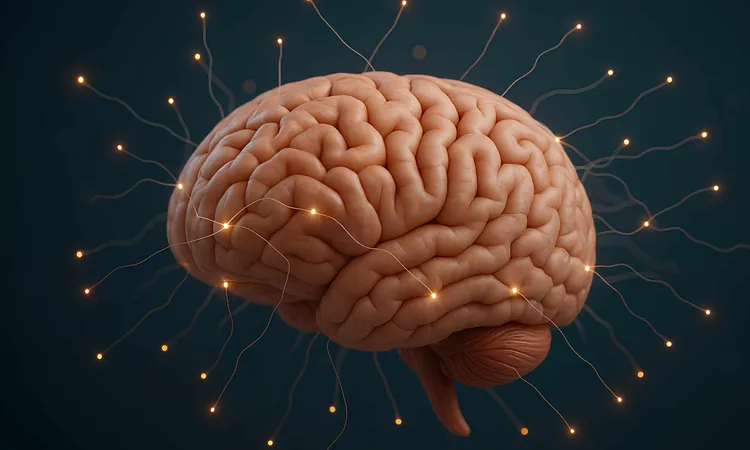
Breakthrough in Brain Health: Researchers Restore Memory by Revitalizing Sugar Layers
2025-05-20
Author: Ming
Aging often brings unexpected challenges, and recent research suggests that sugar may play a crucial role in brain health as we grow older. Scientists have discovered that the brain's protective sugary coating diminishes with age, compromising its defenses and potentially impacting memory.
The Role of the Glycocalyx
At the forefront of this intriguing research is Nobel laureate Carolyn Bertozzi from Stanford University. She investigated the brain's sugary armor, known as the glycocalyx, responsible for maintaining the integrity of the blood-brain barrier, which selectively permits necessary nutrients while keeping out harmful substances.
Recent findings from a study on mice revealed that this essential sugar layer thins over time, creating vulnerabilities that allow detrimental molecules to penetrate. Bertozzi remarked on the novelty of focusing on sugar molecules, pointing out their prior neglect in favor of more commonly studied proteins.
Restoring the Sugar Shield
Worryingly, minor breaches in the glycocalyx can lead to the infiltration of inflammatory agents, which may contribute to cognitive decline. Nevertheless, scientists found hope in reintroducing critical sugars, which were shown to restore the barrier's strength and reduce inflammation.
Lead researcher Sophia Shi emphasized the significant effects of reintroducing glycans, noting that while these sugars diminish in aging, restoring them can yield positive effects on brain health.
A Memory Revival
The results were promising: mice with augmented sugar levels exhibited improved performance in memory tasks. This suggests that addressing the sugar deficit could play a vital role in enhancing cognitive functions and possibly combating age-related memory loss.
Implications for Future Treatments
This groundbreaking research lays the foundation for a new approach to understanding how aging affects brain resilience. The revelation that minor sugar enhancements can significantly bolster the blood-brain barrier opens new avenues for treatment strategies, particularly in conditions like Alzheimer’s disease.
As researchers continue their investigations, they aim to identify which specific sugars are most beneficial and how they interrelate with other protective components in the brain. Understanding these dynamics may lead to breakthroughs in how we approach neuroinflammation and cognitive health.
The Road Ahead
While there's still much to learn, the promising results in animal models suggest that improved sugar biology could pave the way for innovative therapies that target and cross the blood-brain barrier effectively, minimizing harmful leaks.
Even for younger individuals, enhancing the glycocalyx could offer new methods to resist brain disorders, and ongoing research continues to scrutinize the protective benefits that these sugar layers provide.
Conclusion
As studies advance, the potential for enhancing memory and combating cognitive decline through sugar restoration remains an exciting frontier in neuroscience. With continued exploration, we may soon unlock essential strategies to maintain brain health well into old age.




 Brasil (PT)
Brasil (PT)
 Canada (EN)
Canada (EN)
 Chile (ES)
Chile (ES)
 Česko (CS)
Česko (CS)
 대한민국 (KO)
대한민국 (KO)
 España (ES)
España (ES)
 France (FR)
France (FR)
 Hong Kong (EN)
Hong Kong (EN)
 Italia (IT)
Italia (IT)
 日本 (JA)
日本 (JA)
 Magyarország (HU)
Magyarország (HU)
 Norge (NO)
Norge (NO)
 Polska (PL)
Polska (PL)
 Schweiz (DE)
Schweiz (DE)
 Singapore (EN)
Singapore (EN)
 Sverige (SV)
Sverige (SV)
 Suomi (FI)
Suomi (FI)
 Türkiye (TR)
Türkiye (TR)
 الإمارات العربية المتحدة (AR)
الإمارات العربية المتحدة (AR)